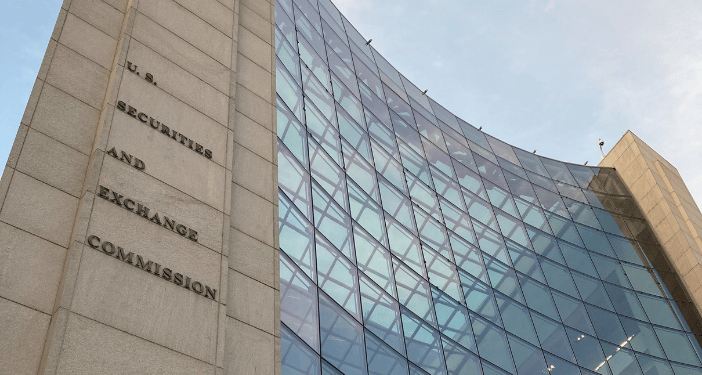Whistleblower advocates have called for amendments to the U.S. Securities and Exchange Commission (SEC) Whistleblower Program’s rule on related action awards since the agency passed a controversial rule change on the issue in 2020. On March 22, the whistleblower law firm Kohn, Kohn & Colapinto (KKC) sent a letter to the SEC voicing strong support for the agency’s recently proposed rule change addressing the related action issue.
According to the letter, the whistleblower attorneys at KKC support the proposed rule change because it fixes issues with the current rule which “violates the law, undermines statutory intent of the [Dodd-Frank Act], and disincentivizes whistleblowers.”
The whistleblower program’s related action rules govern the agency’s granting of related action awards to qualified whistleblowers. Through the SEC Whistleblower Program, whistleblowers who voluntarily provide original information that leads to a successful enforcement action, are entitled to a monetary award of 10-30% of funds recouped by the government. Under the Dodd-Frank Act’s (DFA) related action provision, when the information provided to the SEC by a whistleblower also leads to a successful enforcement action by another agency, the whistleblower is entitled to an award based on the money recovered in this “related” enforcement action.
Related action awards are meant to incentivize whistleblowers to cooperate with different federal agencies interested in policing the misconduct. The SEC has issued numerous related action awards over the past 10 years. For example, in February 2021 the agency awarded $9.2 million to a whistleblower whose disclosure to the SEC led to multiple enforcement actions by the Department of Justice (DOJ).
In September 2020, the SEC approved a number of rule changes to its whistleblower program. One controversial rule change altered the agency’s handling of related action awards.
Under the new rule, if a related action could be covered by another whistleblower reward law, then the SEC can deny the related action award. This rule was heavily criticized by whistleblower advocates as well as the two SEC Commissioners who voted no on the rule changes.
One of the major issues with the 2020 rule, according to whistleblower advocates, is that it disincentivizes whistleblowing by requiring whistleblowers to rely on outdated and ineffective whistleblower reward programs. The letter from KKC states that “[t]he current rule creates substantial risks for whistleblowers whose related action cases implicate older reward laws that are purely discretionary and/or have very low mandatory reward caps.”
For example, the letter points to the dysfunctional whistleblower reward provisions of the Financial Institutions Reform, Recovery, and Enforcement Act (FIRREA). This outdated law does not offer confidentiality protection to whistleblowers and its awards are purely discretionary. Under the current rule, if a whistleblower’s SEC disclosure leads to an enforcement action covered under FIRREA, then the SEC will not pay a related action award for that action. Thus, instead of being entitled to an SEC related action award of 10-30% of the funds recovered in the FIRREA action, the whistleblower would be reliant upon the discretionary reward provisions of FIRREA for compensation.
“The current rule must be amended as proposed by the Commission,” KKC’s letter states. “It causes confusion as to reward eligibility, discourages whistleblowers from stepping forward, interferes with a whistleblower’s willingness to fully cooperate with other federal or state law enforcement agencies, and causes significant hardship on a small class of whistleblowers covered under the deficient reward laws.”
The SEC announced the new proposed rule change on February 10, 2022. The proposed rule would allow the SEC to pay related action awards for enforcement actions taken by other entities even when those agencies have their own whistleblower reward programs with more direct connection to the action. According to SEC Chair Gary Gensler, this rule change “is designed to ensure that a whistleblower is not disadvantaged by another whistleblower program that would not give them as high an award as the SEC would offer.
Whistleblower advocates also claim the SEC’s proposed rule is necessary because the current rule violates the Dodd-Frank Act. The DFA explicitly states that that the SEC “shall pay” rewards in “related actions” within the mandatory 10-30% range. According to KKC’s letter, “the related action requirements under the DFA are clearly set forth in the statute. In light of the U.S. Supreme Court’s decision in Digital Realty v. Somers, 583 U.S. ___ (2018), the Commission is bound by the statutory definition and cannot approve any rule that is inconsistent with that definition.”
Read:
Whistleblower Attorneys Support Proposed SEC Rule on Related Action Awards


